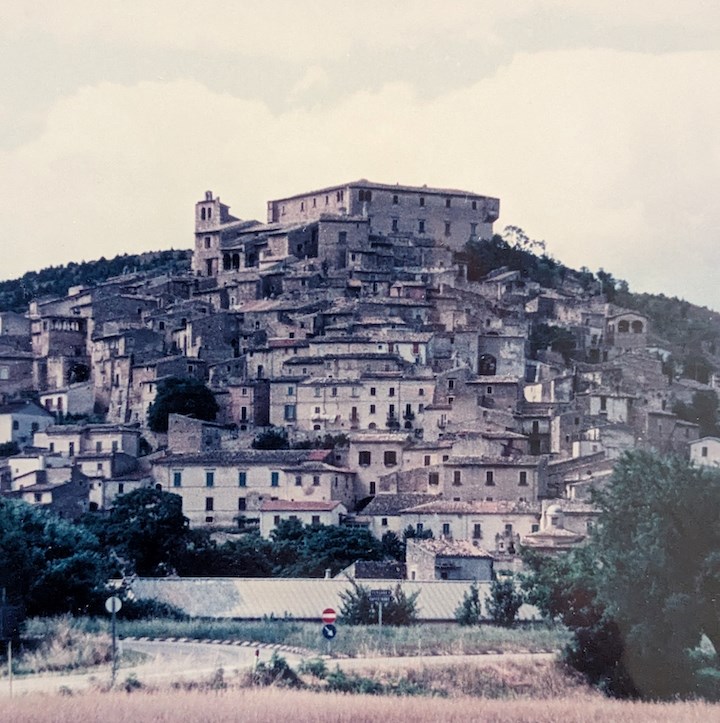By Lou Giancarlo
This is the story of one girl’s memories of war.
In September 1943, Italy surrendered to the Allies. The Germans, once unified with Italy, became its occupiers. The German command made the decision to hold Italy as a buttress against the on-coming Allied forces that would threaten Germany from the south.
The army was single-minded and brutal is so doing. Reprisals against civilians aiding the enemy were harsh and swift. The Ardeatine Massacre of March 22, 1944 in Rome served as a vicious example of how civilians were butchered.
It is against this bloody backdrop that a 12-year-old girl and her parents in Navelli, Abruzzo lived, with anxiety and fear ever present. The Germans occupied Navelli and made use of all resources there. In particular, they relied on the bakeries to supply bread for their troops. And so the little village was of considerable importance to them.
It is in this most brutal and desperate of times that the 12-year-old remembers her parents’ acts of courage. A local Jewish doctor whom the Nazis had singled out for deportation, was hidden deep within the recesses of the barn by her father in a moment’s decision. The doctor escaped that day, with the Germans in hot pursuit, only to be captured some time later. He and his family were never heard from again.
The girl tells of how an American captain and two German officers sat at the kitchen table and ate dinner together, enjoying her mother’s cooking. The American, who spoke both Italian and German, and who was posing as a family friend, plied the officers with wine and praise as he expounded upon German military superiority. The more wine was drunk, the looser the officers became.
During the night, the American reported the intelligence he had gathered to his superiors by using a crystal set hidden deep within the cellar. Time and again he relayed information to the advancing Americans. He called upon the family for several weeks, relying on them for food and shelter. When he was re-assigned further north, he told them that he was forever grateful and that he would come back if he survived the war. He never returned.
The story of civilian bravery repeats countless times throughout Italy and all of Europe, as individuals stood up against Nazi tyranny by whatever means possible.
This is one story among many, though it is of particular interest to me. The 12-year-old girl who witnessed the horror of war is my 91-year-old mother, Assunta. Had events turned slightly, she would have never emigrated to Canada in 1958 and I would not now be telling her story.
